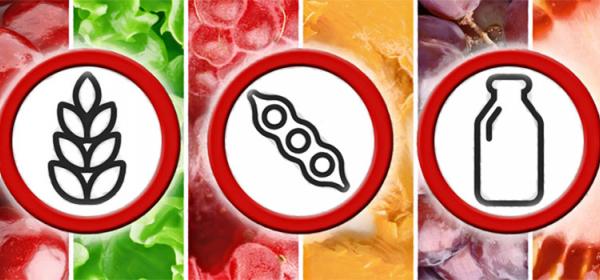Image

Before the Summer is Over
Clean up your diet for two weeks and avoid gluten, soy and dairy, then go out and have pancakes for breakfast, pasta for lunch and pizza for dinner and see how you react.
Gluten
Gluten intolerance is a very common undiagnosed problem that can be a serious health complaint causing a variety of symptoms, from weight gain and fatigue to Irritable Bowel Syndrome. Although not everyone is gluten-intolerant, everyone benefits from a two-month gluten-free diet, because it forces us to eat less of the processed, refined foods that contain gluten, and more unprocessed foods such as organic vegetables, quality proteins, fats, and healthy carbohydrates. People who are gluten-intolerant need to modify their gluten consumption for life. For everyone else, the two-month period is sufficient, after which gluten-containing grains can be reintroduced into a healthier diet. Eating gluten-free means avoiding all foods containing gluten, including wheat, rye, spelt, bulgar, semolina, couscous, triticale, and durum flour. Gluten can be hidden, so it is important to read labels carefully. Be wary of modified food starch, dextrin, flavorings and extracts, hydrolyzed vegetable protein, imitation seafood, and creamed or thickened products such as soups, stews, and sauces. Starchy foods that are allowed include amaranth, arrowroot, buckwheat, corn, millet, potato, quinoa, oats, and rice.Soy
Approximately half of those sensitive to gluten are also allergic to soy and soy products. Part of this may stem from the ways in which soy has been genetically modified and the frequency with which it is used as a food additive. Avoid all concentrated soy protein products, including tofu, tempeh, soy protein powders, and bars that contain soy protein, for the initial two months,. Most people tolerate the small amounts of soy proteins found in soy sauce or whole soybeans.Pasteurized Dairy
Food reactions to pasteurized dairy products are the most easily detected. These products are pasteurized milk, cheese, yogurt, and cottage cheese — but not eggs. There are two potential problems with dairy products: lactose intolerance, which is an inability to digest the carbohydrate or sugar portion of milk, and milk allergy, which is a reaction to the protein in milk. Pasteurization and homogenization destroys the enzymes in milk that help us digest it, the healthy bacteria in milk that help keep the gut working well, and the beneficial fats in dairy, rendering what could be a very nurturing and healing food a potentially harmful product. While pasteurized dairy is to be avoided, raw dairy may be introduced after two weeks of a diet free of dairy. After two weeks, most people will be able to tell if they are sensitive to dairy by drinking a large glass of whole raw milk first thing in the morning on an empty stomach. If you have no digestive symptoms from doing this, then you can likely consume raw dairy products. Raw butter has butyric acid, which along with the healthy bacteria in butter helps heal the GI tract in dramatic ways.Read Also:
GLUTEN INTOLERANCE: The Hidden EpidemicThe Methodology of Gluten
Gluten Free Diet Reference for Practitioners

